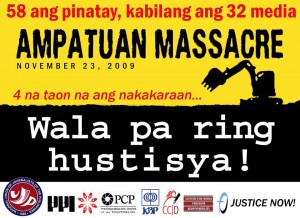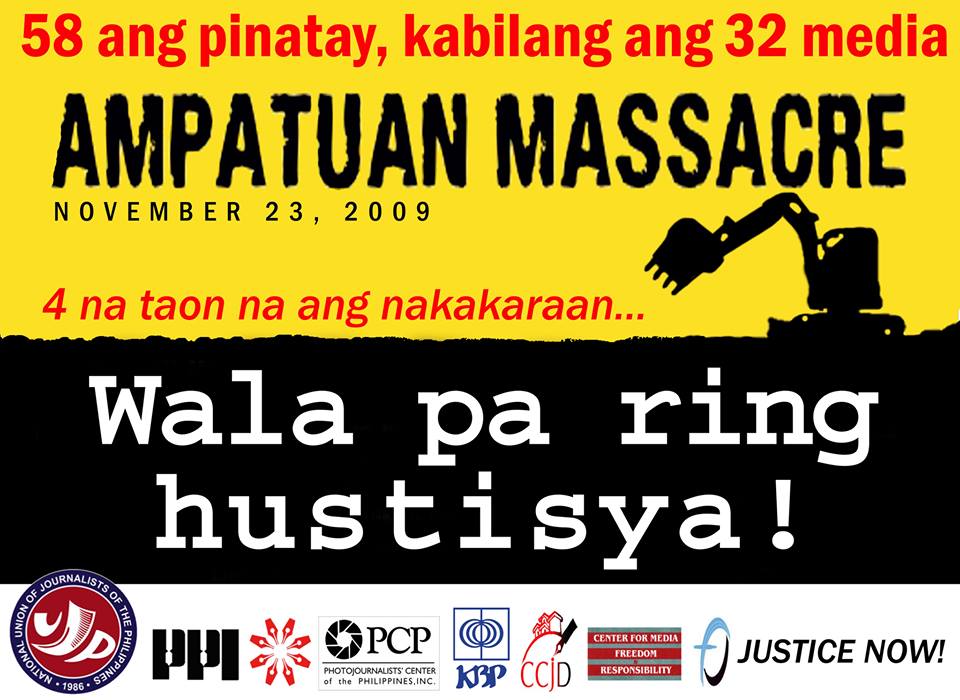
LUCENA CITY, PHILIPPINES — Four years after the heinous massacre of 58 individuals—32 of whom are journalists—in the worst election-related violence the nation has ever witnessed, Philippine journalists along with other freedom-loving Filipinos grieved over the culture of impunity and the state’s failure to end the culture of violence that made their colleagues and other innocent victims slaughtered and butchered like pigs.
On the November 23rd bloodbath in Maguindanao province, at least 32 of members of the press along with the wife, relatives and supporters of Ismail Mangudadatu were allegedly massacred by Shariff Aguak Mayor Andal Ampatuan Jr. and police Sr. Inspector Dicay, according to the military. The convoys were on their way to file Mangudadatu’s certificate of candidacy to run as governor of Maguindanao.
Reports said that the large number of journalists killed in the incident has made it the biggest butchery of media men in a single day. Worst, it puts the country among the worst countries in the world for journalists to work and live in. .
Journalists and student activists in the Philippines lamented over the denial of justice to the victims for four long years and lambasted the apathy of the Aquino administration to resolve media and other extrajudicial killings.
Candle lighting, human chains and other symbolic activities are launched starting today to commemorate the fourth anniversary of the massacre on Nov. 23, 2009 that put the Philippines as second deadliest place for journalists.
“These violations exist despite international conventions, declarations, national laws and articles in the Philippine Constitution formulated to uphold human rights based on lessons from the horrors of the past. These blatant violations compel us, the watchdogs of democracy, to condemn such disregard to life,” Ronilo Dagos, Chairman of the National Union of Journalists of the Philippines in Quezon province, said.
Dagos said that the reigning culture of impunity sends a chilling effect to the public and journalists, deterring them from covering the important issues of the day for fear of persecution by state forces or the powerful local elite.
“With the raging determination of the media to deeply link its struggle for press freedom to the people’s plight for democracy, the call for justice and the call to end impunity will continue to reverberate in the streets until the people attain social justice,” Dagos ended.








Leave a Reply